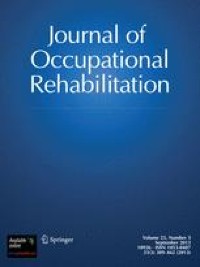The results Of Failing To Drug Rehab Thailand When Launching Your smal…
Danny Gardner
0
2
01.17 00:36
 Alcohol detoxification is a vital procedure in the journey of recovery for folks suffering alcohol addiction. It aims to eliminate toxins from human body while managing withdrawal signs. This report explores the value of alcohol detoxification, signs and symptoms skilled during detoxification, while the techniques employed to make certain a secure and effective cleansing process.
Alcohol detoxification is a vital procedure in the journey of recovery for folks suffering alcohol addiction. It aims to eliminate toxins from human body while managing withdrawal signs. This report explores the value of alcohol detoxification, signs and symptoms skilled during detoxification, while the techniques employed to make certain a secure and effective cleansing process.Significance of Alcohol Detoxification
Alcoholic beverages detox plays a crucial role in addiction data recovery as a result of the actual and mental reliance that develops as time passes. Chronic alcohol abuse contributes to alterations in mind chemistry, leading to withdrawal signs whenever alcohol consumption is ceased. These symptoms can include tremors, anxiety, sleeplessness, sickness, plus seizures. By undergoing detoxification, individuals can over come the immediate real aftereffects of alcoholic beverages detachment, establishing the phase for additional therapy and lasting recovery.
Signs Experienced During Alcohol Detoxification
During alcoholic beverages cleansing, people can experience a wide range of withdrawal signs that will vary in seriousness. Mild signs may include trembling, perspiring, and problems, while worse situations can include hallucinations, delirium, and seizures. The power and length of time among these signs depend on different facets, drug rehab chiang mai including the amount and length of alcoholic abuse, specific health problems, and previous cleansing experiences. It is critical to observe that these symptoms can be deadly, highlighting the requirement of health-related guidance through the detoxification process.
Ways of Alcohol Detox
There are different methods and settings designed for liquor detoxification, which can be classified into outpatient, inpatient, and hospital-based detox services. Outpatient detoxification programs offer mobility, permitting individuals to obtain therapy while living at home. However, they're generally recommended for people who have moderate withdrawal signs and a powerful help system. Inpatient detox programs provide a controlled environment with 24/7 medical care, ensuring immediate focus on any problems which will arise. Hospital-based cleansing, conversely, would work for individuals with serious detachment symptoms, requiring a higher standard of health input.
During cleansing, healthcare specialists may administer medications to ease detachment symptoms and minimize discomfort. Medications including benzodiazepines, anticonvulsants, and anti-anxiety drugs can be familiar with handle withdrawal symptoms successfully. Furthermore, medical professionals monitor important indications, offer guidance services, and apply an extensive treatment solution to address the root factors behind alcohol addiction.
Conclusion
Alcohol detoxification is a critical step towards data recovery, aiding individuals in handling detachment symptoms and reducing the threat of complications. It offers a secure and supervised environment for people to get rid of toxins from their health and prepares them for further treatment modalities. However, it is vital to recognize that detoxification alone isn't a complete solution but rather the original phase of an extensive treatment plan. Following detox, people should-be urged to take part in counseling, therapy, and support groups to deal with the mental and personal areas of liquor addiction. By acknowledging the importance of liquor cleansing and providing extensive treatment, healthcare experts can offer individuals suffering alcoholic beverages addiction a greater possibility at enduring recovery.